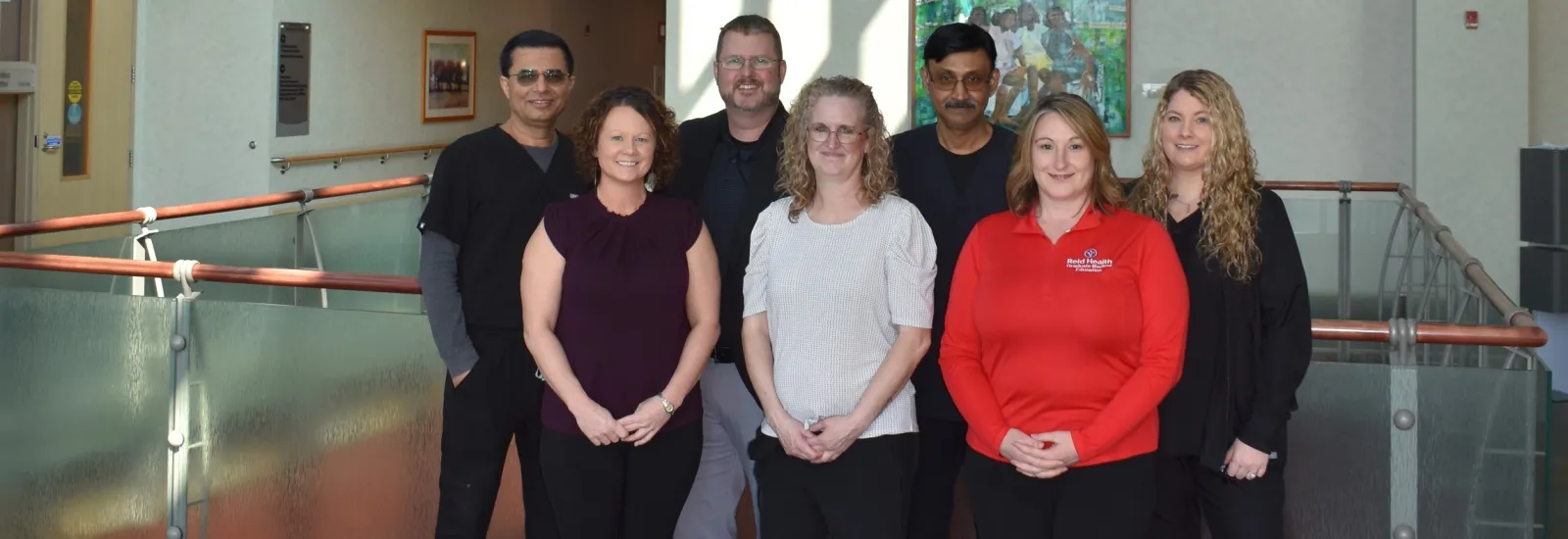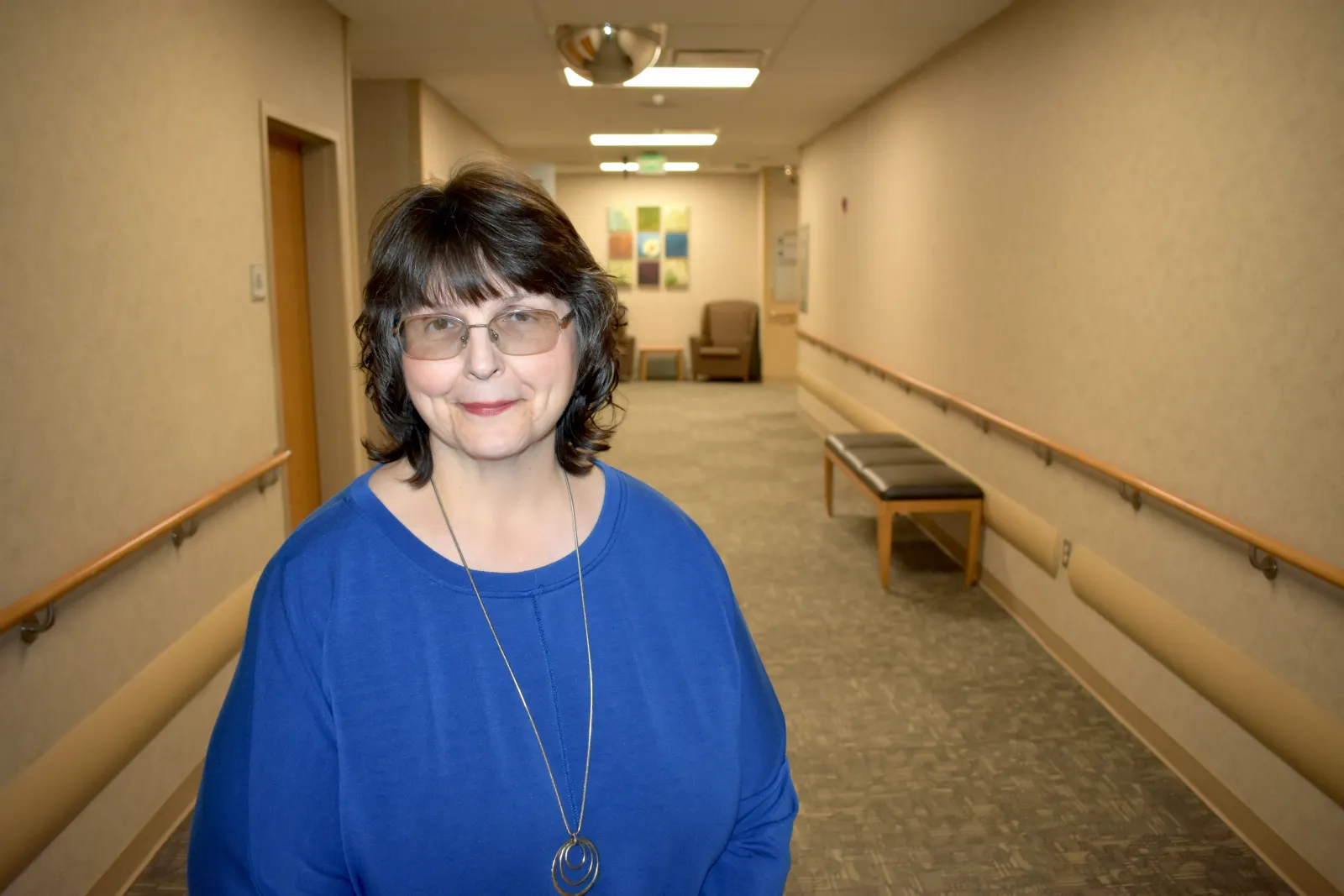
‘Medicine is a wonderful thing’: Research trials allow qualified patients access to cutting-edge treatments
When you think about medical trials, what comes to mind?
You're probably envisioning a large health system with a
national reputation along the lines of the Mayo Clinic or St. Jude's. Maybe
instead it's a large university known for high-level academic research like a
Harvard or Duke.
But you don't have to live in a big city to have access to
cutting-edge medical treatments. You can actually find it right here in East
Central Indiana at Reid Health.
For nearly 20 years, Reid has partnered with pharmaceutical
companies and large research groups to make medical trials available to local
patients who meet the required criteria for participation. Studies have focused
on areas of care such as cardiology, oncology, endocrinology, and infectious
disease, with cardiology trials having been conducted for the past 10 years.
"I think it's a natural extension of our clinical
practice," said John McGinty IV, MD, Medical Director for Richmond Cardiology
Associates. "I want to give patients every opportunity to treat their
condition.
"I feel like participating in these trials makes me a
better doctor because I know what's going on internationally in research and
can bring treatment options to our patients that could help them before they're
available to the masses."
Dr. McGinty serves as the principal investigator for cardiology
research studies at Reid.
"It's a natural interest of mine to be on the cutting edge
of cardiovascular medicine," he said. "It's a passion project for me. It makes
my day. I'm just enthusiastic about it."
Dr. McGinty and the clinical research team at Richmond
Cardiology Associates -- including Clinical Research Coordinators Nancy Fry and
Kristi McGuire; Jithendra Choudary, MD; Rubinder Dab, MD; and Reid Health
Director of Medical Education & Research Tiffany Ridge -- identify trials of
interest and patients who might meet the requirements for participation.
"Many of the trials we've participated in have shown real results and changed clinical practice. We've been very busy and have a good track record. In the beginning, we had to seek out trials to join, but now we have a reputation for excellence. We'll get emails from all the major players when they have a new trial they want to start. We tend to be on the short list. These studies change how we take care of patients. They're extremely valuable and helpful, not only for the patients but for the advancement of science. We thank everyone who participates." -- John McGinty IV, MD, Medical Director for Richmond Cardiology Associates
Past cardiology studies have centered on conditions such
atrial fibrillation (Afib), congestive heart failure, high cholesterol, high
blood pressure, and heart attacks. Most have been testing new medications or
protocols for treatment, lasting anywhere from a couple of weeks up to five
years.
"We don't take on anything we don't think we can do
effectively locally," Dr. McGinty said. "This takes a team effort. It wouldn't
be successful without the dedication of these staff members."
That team includes a group called an Institutional Review
Board (IRB) -- also known as an ethics committee -- which reviews any trials Reid
is participating in with an eye toward patient safety. An IRB must be
registered with the U.S. Department of Health and Human Services and renewed
every five years.
The board is made up of at least five members with varying
backgrounds. At least one must have scientific expertise, at least one must
have a nonscientific background, and at least one must be a community member
who has no affiliation with the health system participating in a trial.
All members of an IRB must complete training in basic
research ethics.
"The ethics committee members ask questions about a
particular study's protocols and then either approve our participation or not,
all with patient safety in mind," Dr. McGinty said. "The review board has
oversight throughout the duration of the trial. Should there be any indication
of added risks that weren't apparent initially, they would shut the trial
down."
Whether someone participates in a research study is
entirely up to the patient. Reid staff review inpatient and outpatient charts
of those who might be good candidates for an upcoming trial to see if they meet
the needed criteria. If they do, staff then approach the patient and their
provider to gauge whether the patient is willing to participate.

Bobbie Scott of Brownsville, Indiana, is in the middle of
her second cardiology trial, this one testing a medication for people who have
a cardiovascular problem and weight issues.
"So far, I'm very, very pleased with the results. I'm just
glad to help," she said. "Communication is great with the research team. They
explain in detail each time they do things. I'm never in the dark."
Scott appreciates the extra attention that comes with being
part of a study, all at no cost to herself. The care that's given in research
trials is paid for by the sponsoring organization.
"You're still going to have your regular doctor's visits,
and then there's medication, extra visits, phone calls, and more testing all at
no cost to the patient," Fry said. "They do get more attention, for sure.
"We spend a lot of time with our patients, so you really
get to know them. I can tell you all about their families."
Reid first participated in a cardiology research study in
2014 and has completed more than 50 since, with about 15 ongoing.
"Many of the trials we've participated in have shown real
results and changed clinical practice," Dr. McGinty said. "We've been very busy
and have a good track record. In the beginning, we had to seek out trials to
join, but now we have a reputation for excellence. We'll get emails from all
the major players when they have a new trial they want to start. We tend to be
on the short list.
"These studies change how we take care of patients. They're
extremely valuable and helpful, not only for the patients but for the
advancement of science. We thank everyone who participates."
Scott encourages anyone who might be approached about
participating in a research trial to strongly consider jumping in.
"It's all good. Step on board," Scott said. "This is how we
get the treatments we have today. Medicine is a wonderful thing."
If you're having heart issues and would like to see a provider, contact the Reid Health Heart & Vascular Center at (765) 962-1337.

